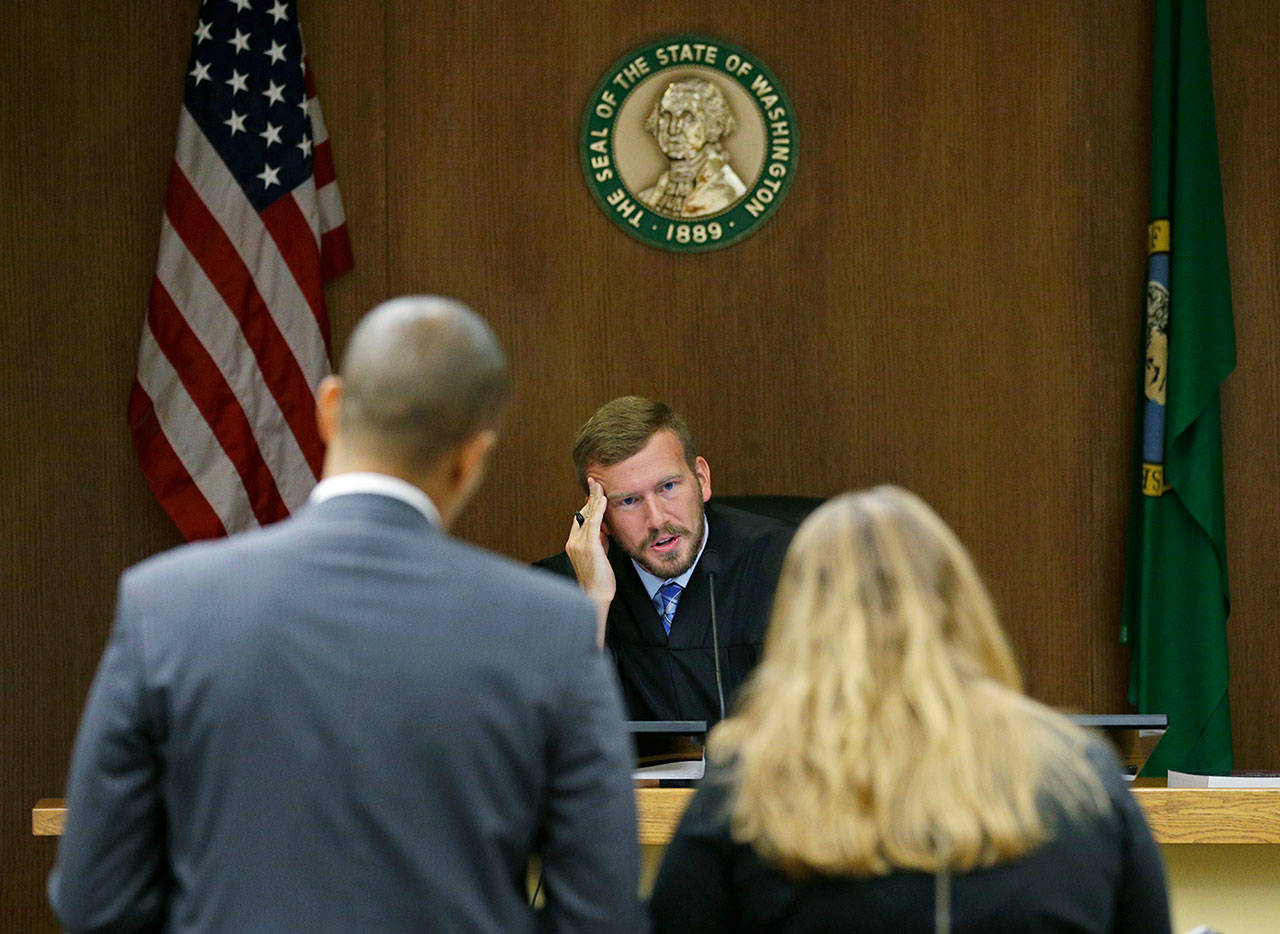By The Herald Editorial Board
State law that applies to the goose, applies to the gander.
A Superior Court judge last week sided with a media coalition seeking to apply the state’s public records law to state lawmakers just as it must be followed by other elected officials, agencies and local governments.
For decades, state legislators have attempted to excuse themselves from provisions of the state’s Public Records Act, created by voters in 1972, which requires elected officials, state agencies and all forms of local government to comply with specific requests for public records and documents.
Last fall, a coalition of 10 news organizations, including the Associated Press and The Herald’s Sound Publishing, challenged lawmakers’ most recent refusal to respond to a records request that sought emails, work calendars and any staff complaints involving alleged sexual harassment by lawmakers from each of the 147 legislators.
We’ve pointed out previously how clear the intent of the Public Records Act is, which states:
“The people, in delegating authority, do not give their public servants the right to decide what is good for the people to know and what is not good for them to know. The people insist on remaining informed so that they may maintain control over the instruments that they have created.”
Thurston County Superior Court Judge Chris Lanese was just as direct in his ruling:
“The plain and unambiguous language of the Public Records Act applies to the offices of senators and representatives,” Lanese concluded.
While Lanese’s ruling preserved an exemption for the Legislature, itself, as well as the administrative offices of the Senate and House, Lanese ruled that because a lawmaker had forwarded documents to those offices didn’t then extend the exemption to the documents; records received or drafted by legislators are subject to the Public Records Act, the judge wrote.
While appeals and a final decision left to the state Supreme Court are likely, lawmakers ought to begin work now to comply with the act and join their public brethren. Some lawmakers already are acknowledging this, including state Sen. Guy Palumbo, D-Maltby, who told The Herald: “I am of the mindset that we should craft a bill that subjects us to the Public Records Act like local government but also takes care of some legitimate privacy issues.”
Rep. Gerry Pollet, D-Seattle, has already done so, filing legislation that would specify the types of documents that would be covered, including calendars and schedules; administrative budget and financial records; personnel leave, travel and payroll records; reports to the Legislature; correspondence with individuals outside the Legislature seeking to lobby lawmakers on bills; and findings and reports regarding misconduct by lawmakers or staff.
Pollet’s bill would exempt personal information and schedules, as it would “protect communications from whistle-blowers” reporting fraud or misconduct, he said in a news release.
Pollet’s bill is a step in the right direction, but lawmakers should take care not to be so prescriptive in their language that they create an exemption or allow one to be assumed that wasn’t intended. Communications from whistle-blowers are among the very documents that should be released when requested. But it can be done in a way — such as through redactions of identifying information — that protects the anonymity of those reporting fraud or abuse.
Legislation should also apply the same methods of fees and cost recovery for individual lawmakers’ offices that the Legislature developed last year to help agencies and local government meet the costs of responding to public records requests. A side benefit to the judge’s decision, the application of the law to legislators should provide them a better understanding of the costs associated with the Public Records Act.
For nearly 50 years, we have expected state agencies and local governments to comply with the Public Records Act. Its very name implies why; the records belong to the public. As it should have all along, that applies to state lawmakers, too.
Talk to us
> Give us your news tips.
> Send us a letter to the editor.
> More Herald contact information.

























